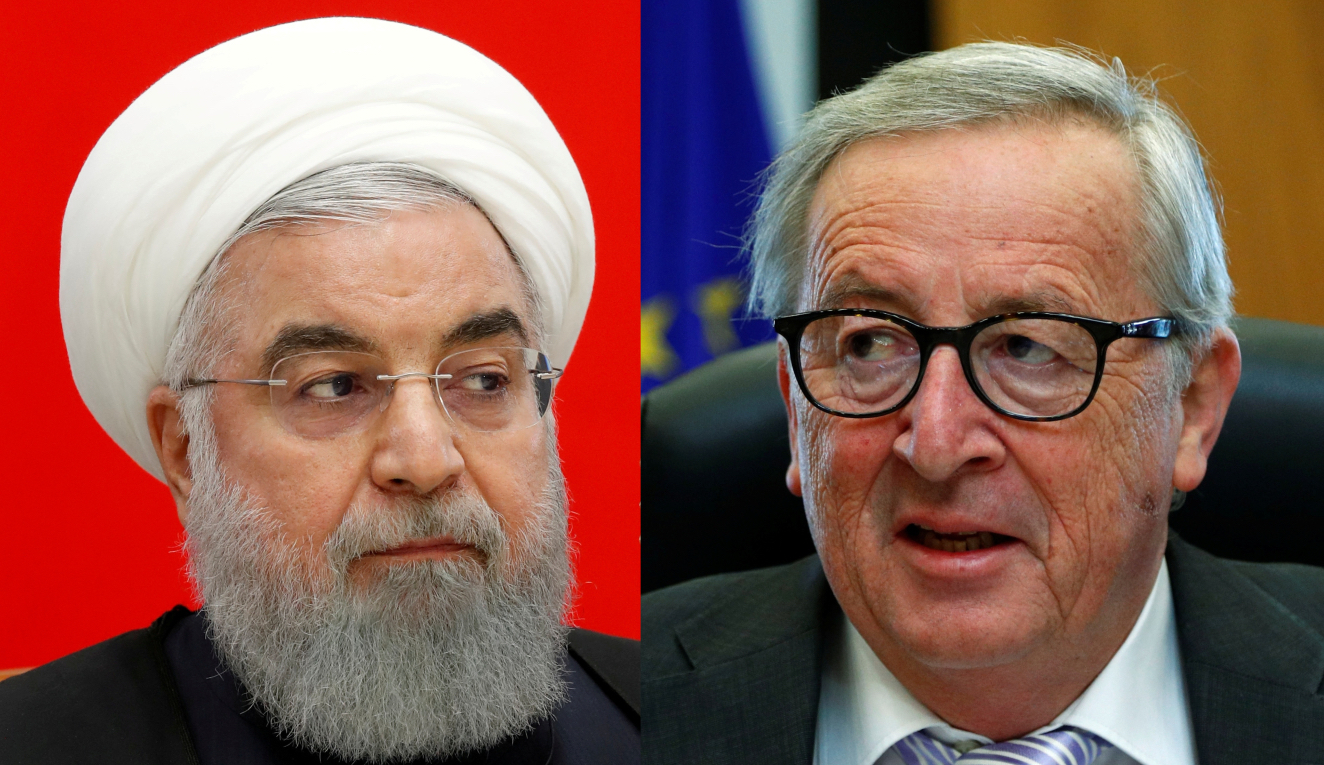- The European Union is threatening to impose a mechanism in the Iran nuclear deal that could see sanctions reimposed on Tehran.
- European signatories of the deal have been trying to persuade Tehran to stop increasing its nuclear stockpile since it breached its limit on enriched uranium this Monday.
- The EU has so far been unsuccessful, and according to one official is now looking to trigger an emergency “dispute resolution mechanism,” the Associated Press reports.
- That mechanism could ultimately see Europe reimpose sanctions on the regime.
- Reimposing sanctions on Iran’s already-flagging economy could push Iran further away from the US and Europe and toward China and Russia.
- Though China and Russia are also JCPOA signatories, and therefore also have an interest in limiting Iran’s nuclear capabilities, they have blamed US sanctions for Iran’s latest nuclear escalations.
- Visit Business Insider’s homepage for more stories.
The European Union is threatening to trigger a last-resort mechanism in the Iran nuclear deal that could reimpose economic sanctions on the regime, The Associated Press (AP) reported, citing a European diplomatic official.
The report comes after Iran breached a 300 kg limit on its enriched uranium stockpile, as enshrined in the Joint Comprehensive Plan of Action (JCPOA), and threatened to increase its stockpiles to “any amount that we want.”

The official told the AP on Thursday that Europe could trigger the JCPOA's "dispute resolution mechanism," a process that allows signatories - the EU, China, Russia, and Iran - to reimpose economic sanctions on Tehran if they find that it wasn't meeting its commitments under the agreement.
The official said the EU was still negotiating with Iran at all levels, and that the regime could still walk back its threat, the AP reported.
But they also said that if the two sides don't resolve the issue, "I don't know how we can avoid it," referring to activating the dispute resolution mechanism, according to the AP.
The process could ultimately elevate the nuclear issue to the UN Security Council and see sanctions reimposed on Iran in as little as two months time.
Reimposing sanctions would further cripple Iran's already-flagging economy, and could push Iran further away from the US and Europe, and toward China and Russia.

Here's how the tool works, according to the text of the nuclear deal:
- If signatories find an infraction of the JCPOA, they can trigger the dispute resolution mechanism. All powers - including Iran - can do it.
- The Joint Commission - made up of nuclear negotiators from the signatory countries - would have 15 days of resolve the issue.
- If this fails after 15 days, any participant could refer the issue to the countries' ministers of foreign affairs. The ministers then have another 15 days to discuss and find a resolution.
- If the issue isn't resolved after those 30 days, it will be elevated to the JCPOA Advisory Board, which has five days to negotiate.
- If it still isn't resolved, then the complaining signatory country can treat the issue as "grounds to cease performing its commitments under this JCPOA in whole or in part," and/or refer it to the UN Security Council. The US, Russia, China, Britain, and France sit on that council.
- If referred to the UN Security Council, it has 30 days to find a resolution to continue with sanctions relief on Iran, which were enshrined in the JCPOA.
- If no resolution is adopted, then all previous sanctions on Iran would be re-imposed. This is also called a "snapback."
Read more: Here's what's in the landmark nuclear deal that Iran just violated amid tensions with Trump

More sanctions could push Iran to China and Russia
Simply by threatening new sanctions against Iran, the EU risks antagonizing the regime and pushing it toward China and Russia.
The EU has been frantically working to preserve the deal and soften the blow of US sanctions against Iran ever since President Donald Trump withdrew from the JCPOA last year and imposed harsh new economic sanctions.
Last Friday, three days before international monitors confirmed Iran's nuclear limit breach, EU negotiators held a last-ditch meeting to persuade Iran not to further increase its nuclear stockpile.
Those efforts failed because Iran said Europe offered too little in terms of economic benefits to persuade it to change course.

After Iran breached its nuclear limit, EU signatories - led by Britain, France, and Germany - said on Tuesday that they "regret" Iran's actions but would not trigger the dispute resolution mechanism "for now."
But that goodwill might not last long, as the three countries had previously threatened to punish Iran if it breached the deal, though they didn't specify how.
Iranian President Hassan Rouhani likely angered European officials on Wednesday by appearing to mock the EU's statement by saying Iran would keep increasing its nuclear stockpiles.
"If you want to express regret and issue a statement, you can do it now," he said, according to the AP.

Though China and Russia are also JCPOA signatories, and therefore also have an interest in limiting Iran's nuclear capabilities, they have struck a softer tone.
Geng Shuang, a spokesman for Beijing's foreign ministry, said on Tuesday that "China regrets Iran's choice of measures," but blamed US sanctions for Iran's latest nuclear escalation.
Russian Foreign Minister Sergei Lavrov - who helped broker the peace deal in 2015, alongside other western leaders who have since left office - also said US sanctions prohibit Iran from selling excess uranium, causing the stockpiling, according to the AP.
It's not entirely clear what closer relationships between Iran and Russia, and Iran and China, would bring.
Tehran currently imports Russian agricultural goods in exchange for crude oil, Russian Energy Minister Aleksandr Novak said in mid-June, according to Radio Farda.
China is believed to have circumvented US sanctions and bought oil from Iran in May, thereby helping prop up its economy, the South China Morning Post reported.

